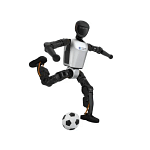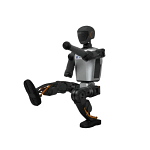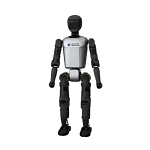Booster T1 is an agile, open-source humanoid platform built for developers and researchers. Standing approximately 1.2 m tall with 23 joints, it features omnidirectional walking, powerful AI onboard via NVIDIA Jetson AGX Orin, and full support for ROS2 and simulation tools—making it an adaptable, high-mobility robotics foundation.
Product Description
The Booster T1 is a developer-focused humanoid robot designed for research, education, and advanced robotics projects. It combines agile locomotion, powerful onboard AI processing, and an open architecture for rapid innovation.
Key Features:
-
Lightweight, Durable Build – About 1.2 m tall, impact-resistant, and highly agile.
-
Configurable Degrees of Freedom – 23 DoF standard, expandable to 31 or 41 for advanced manipulation.
-
High-Performance AI – NVIDIA Jetson AGX Orin with up to 200 TOPS for real-time perception and control.
-
Full Sensor Suite – RGB-D camera, 9-axis IMU, microphone array, and speaker for navigation and interaction.
-
Omnidirectional Motion – Smooth walking in all directions with precise joint control.
-
Wide Software Compatibility – ROS2 support and integration with leading simulation platforms.
-
Mobile & Edge AI Capabilities – Bluetooth/app control, speech/audio functions, and object detection.
-
Competition-Proven – Demonstrated excellence in RoboCup with wins in navigation, racing, and tasks.
-
Reinforcement Learning Support – Booster Gym framework for real-to-sim adaptability.
-
Efficient Power – Up to 2 hours walking or 4 hours standing runtime.
Mobility & Structure
Attribute
Value
Description
Why It Matters
Locomotion Type
Bipedal, wheeled-hybrid, etc.
Defines interaction envelope
Degrees of Freedom (DOF)
# of controllable joints
Directly tied to dexterity & versatility
Max Walk Speed
m/s
Static, dynamic balancing
Upper Body & Manipulation
Attribute
Value
Description
Why It Matters
Arm DOF
Each arm's axis count
Higher = more natural movement
Hand Dexterity
Pinch / 3-finger / 5-finger
Newtons
Grip Feedback
Force, pressure, tactile sensors
Enables delicate handling and learning
Perception
Attribute
Value
Description
Why It Matters
Visual Sensors (Eyes)
RGB / Depth / IR / LiDAR
Navigation, facial recognition, object tracking
Eye DOF / Movement
Can they move? (Y/N, axis count)
Naturalistic interaction & gaze tracking
Audio Sensors (Ears)
# of mics + array type
Needed for voice commands, sound source localization
Face Display / Actuators
LED screen / moving eyebrows / static
Social communication, emotional response
Face Expressiveness
None / Basic / Realistic
Higher = better interaction in social spaces
Interfaces
Attribute
Value
Description
Why It Matters
Voice Recognition
NLP model + languages supported
Enables natural user interaction
Speech Output
TTS engine used + quality level
Critical for public/commercial use
Touch UI / Screen
Present or not
Optional fallback interaction
Remote Control
N/A
Web / App / Joystick
Needed for manual override or remote training
Similar products
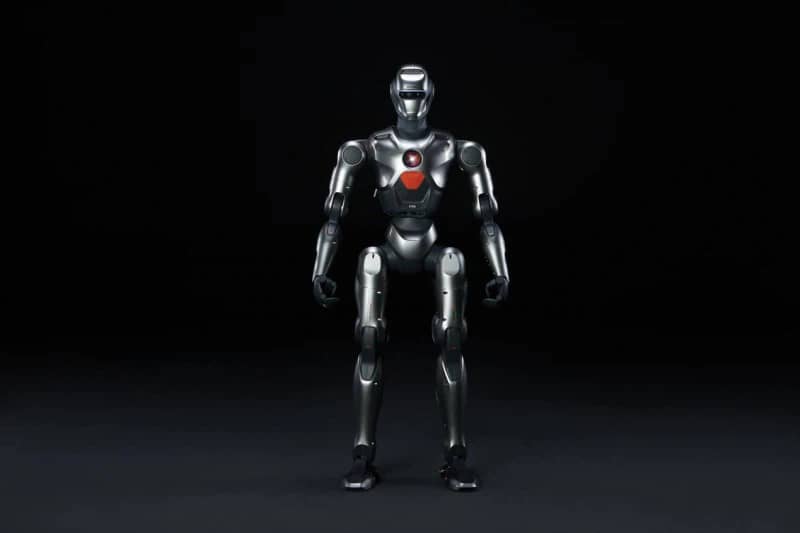
Zhongqing PM01 Humanoid Robot
The Zhongqing PM01 is a versatile humanoid robot...
SKU: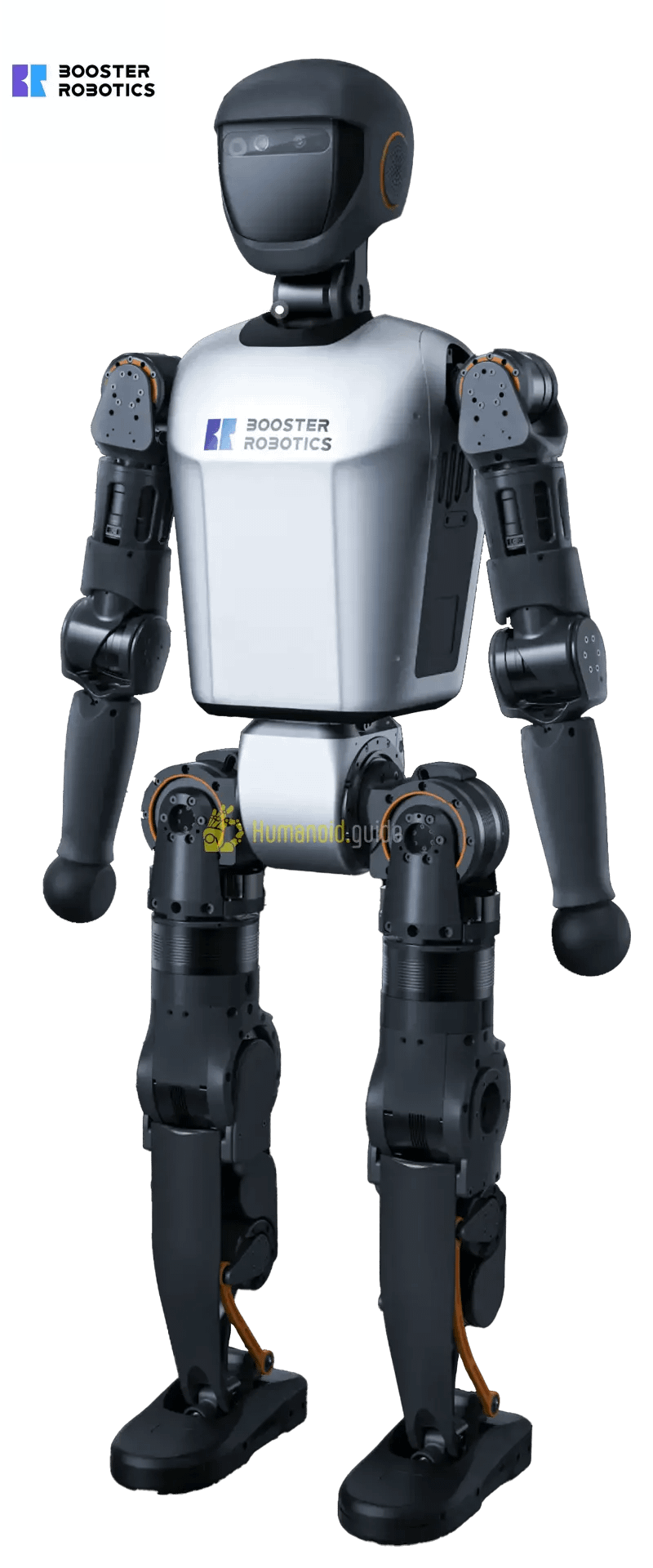
Booster T1
The Booster T1 is an open-source humanoid robot...
SKU: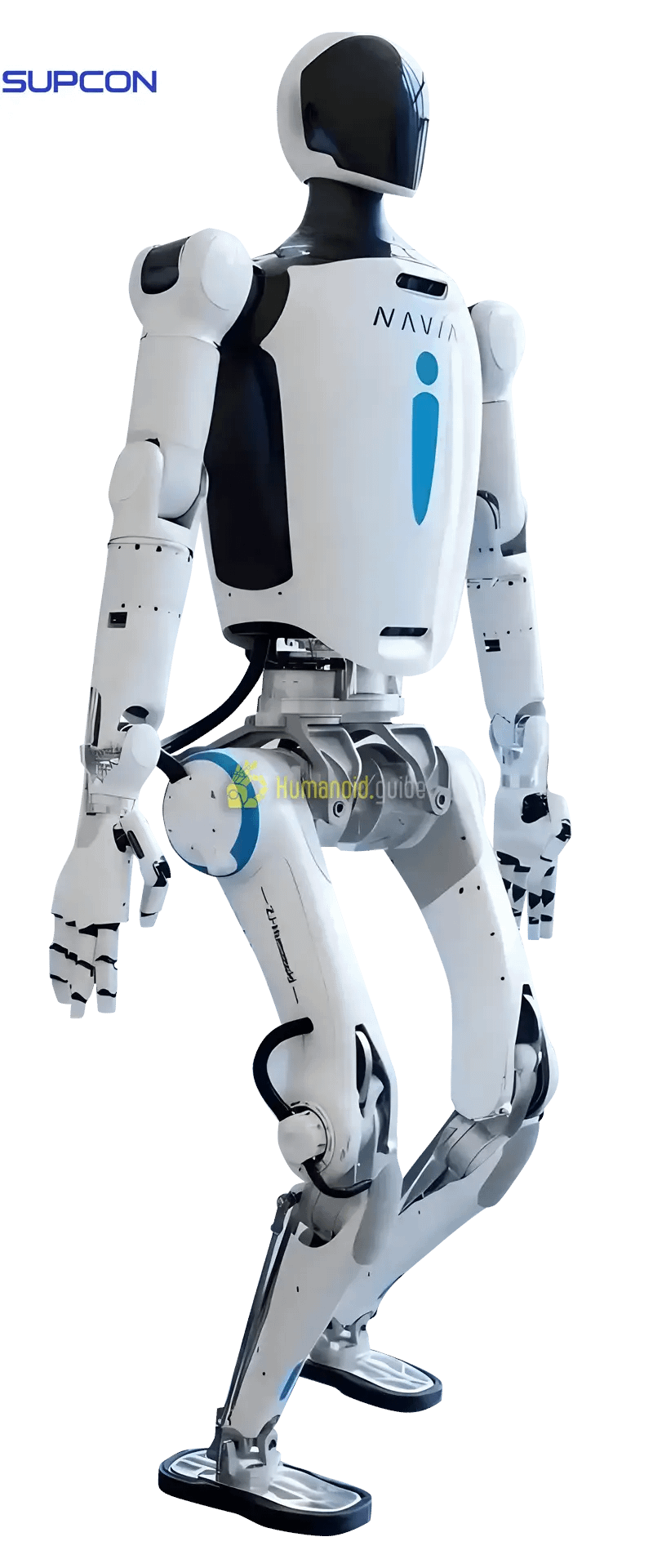
Navigator No. 2 NAVIAI
NAVIAI Navigator 2 is a humanoid robot with...
SKU: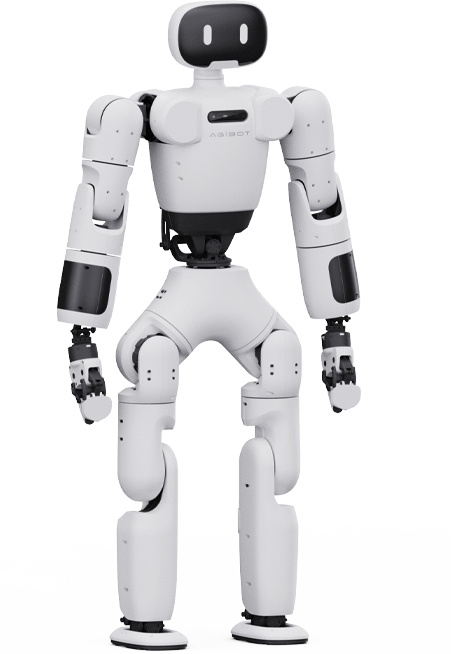
Lingxi X1
The Lingxi X1 is an open-source humanoid robot...
SKU: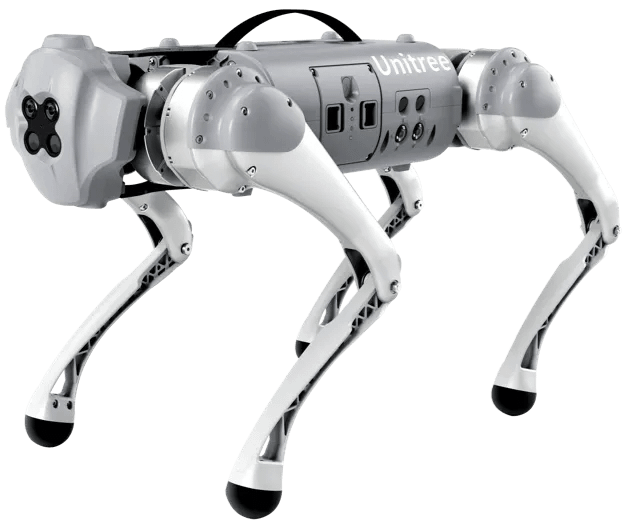
GO1 Quadruped Robot Head
The GO1 Quadruped Robot Head equips your quadruped...
SKU: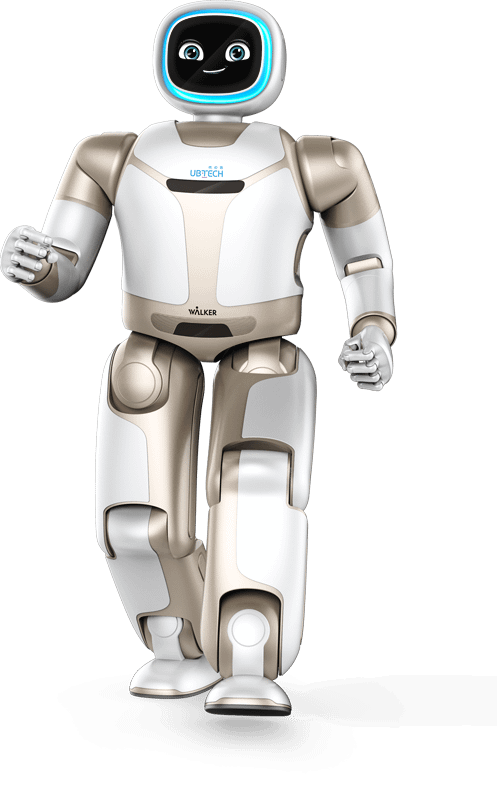
Walker
Agile bipedal humanoid robot with advanced mobility and...
SKU: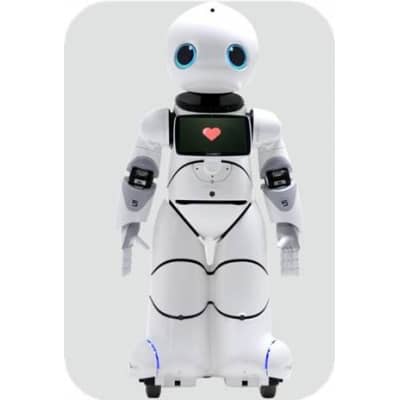
Youyou Robot
Advanced humanoid robot with multi-sensor perception and lifelike...
SKU: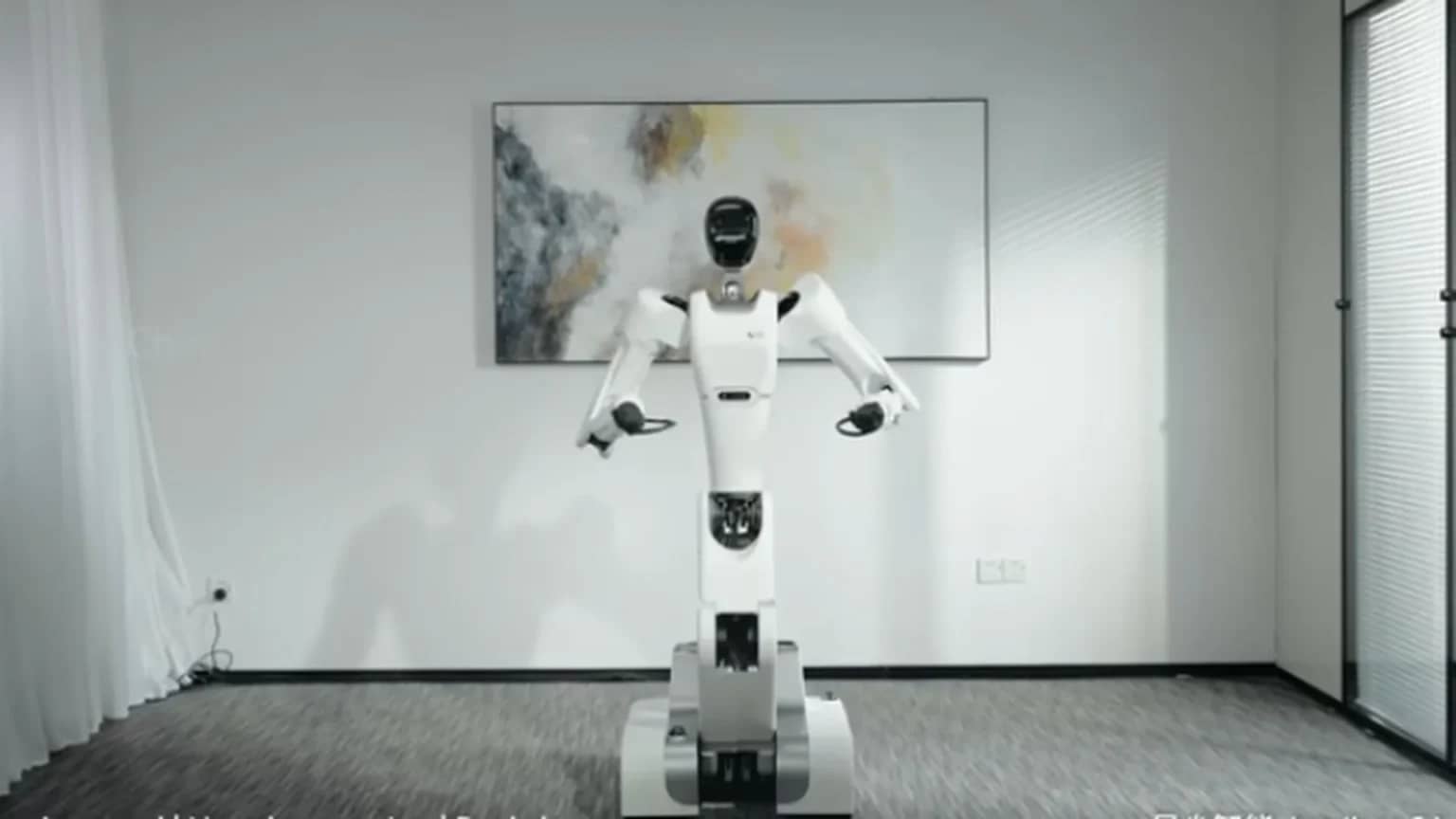
Astribot S1
The Astribot S1 is an intelligent autonomous robot...
SKU: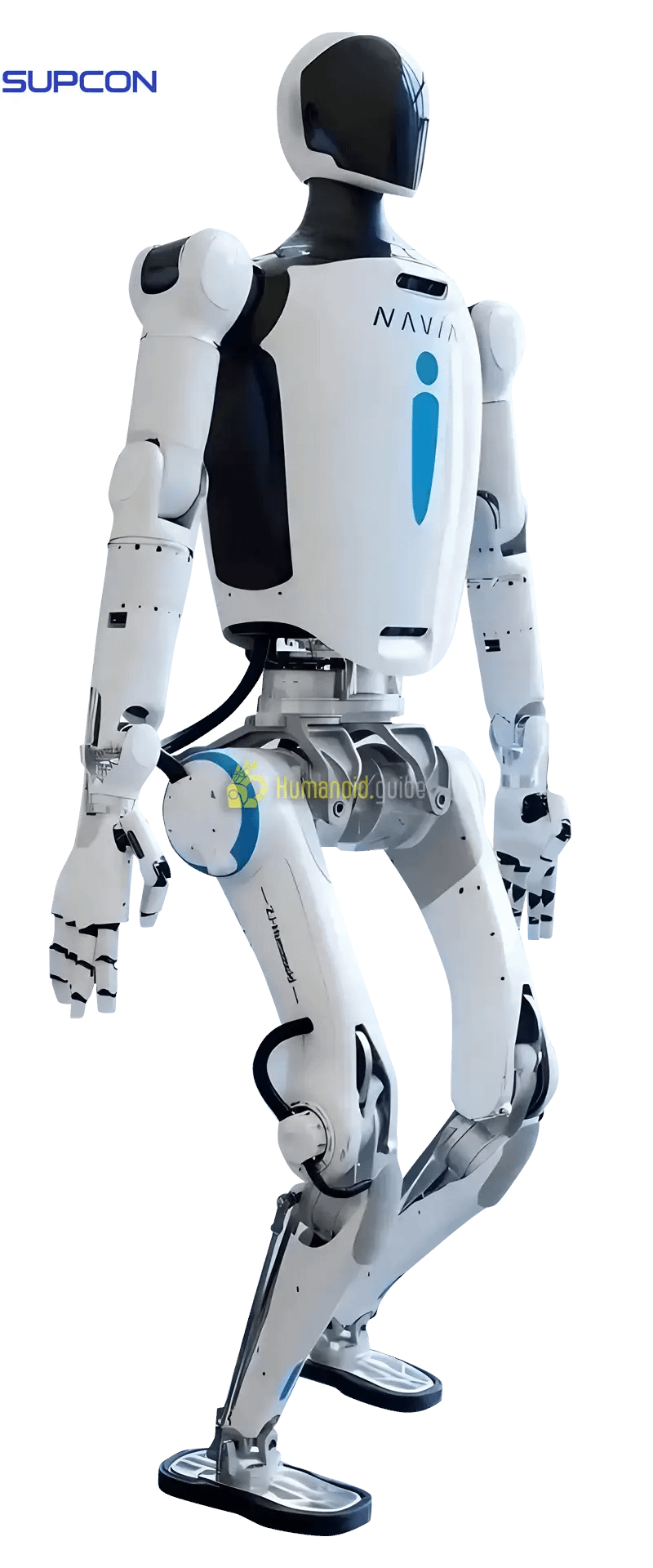
Navigator II NAVIAI
Navigator II NAVIAI is a full-size legged humanoid...
SKU: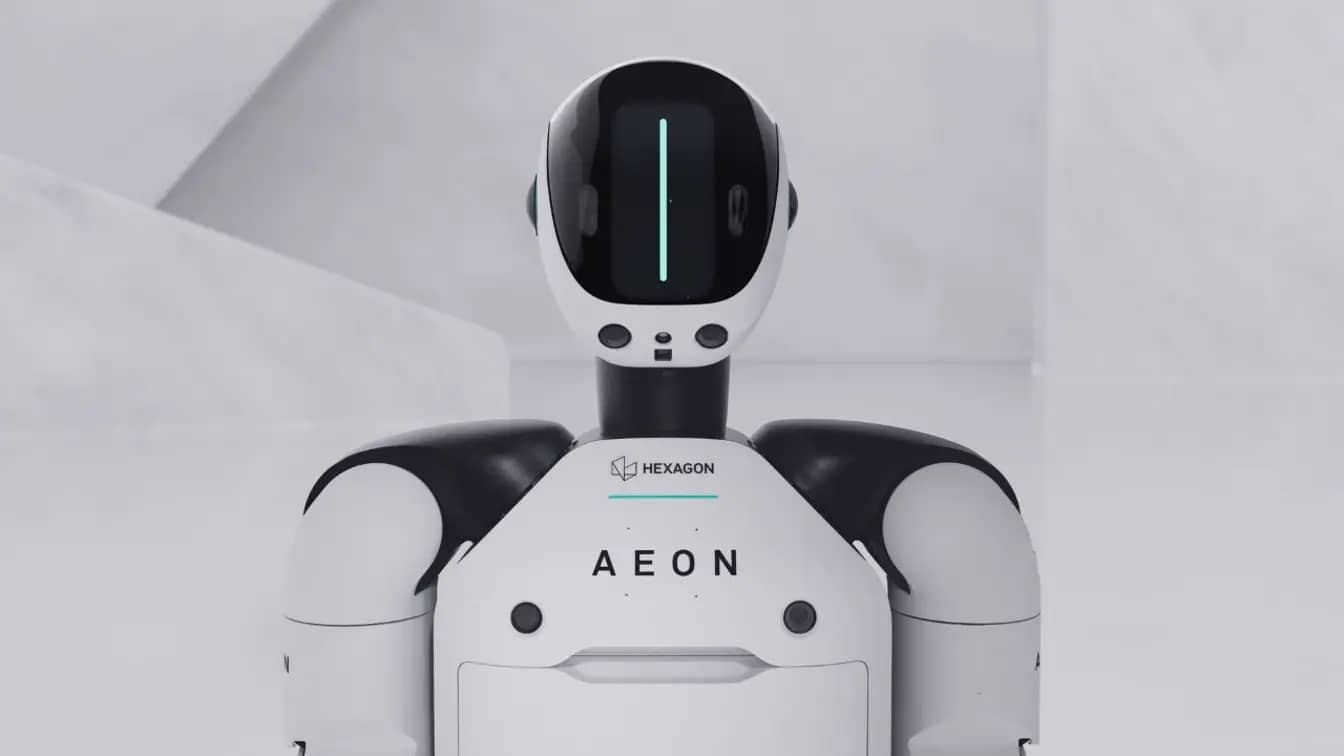
AEON humanoid robot
AEON is an industrial-grade humanoid robot engineered by...
SKU: